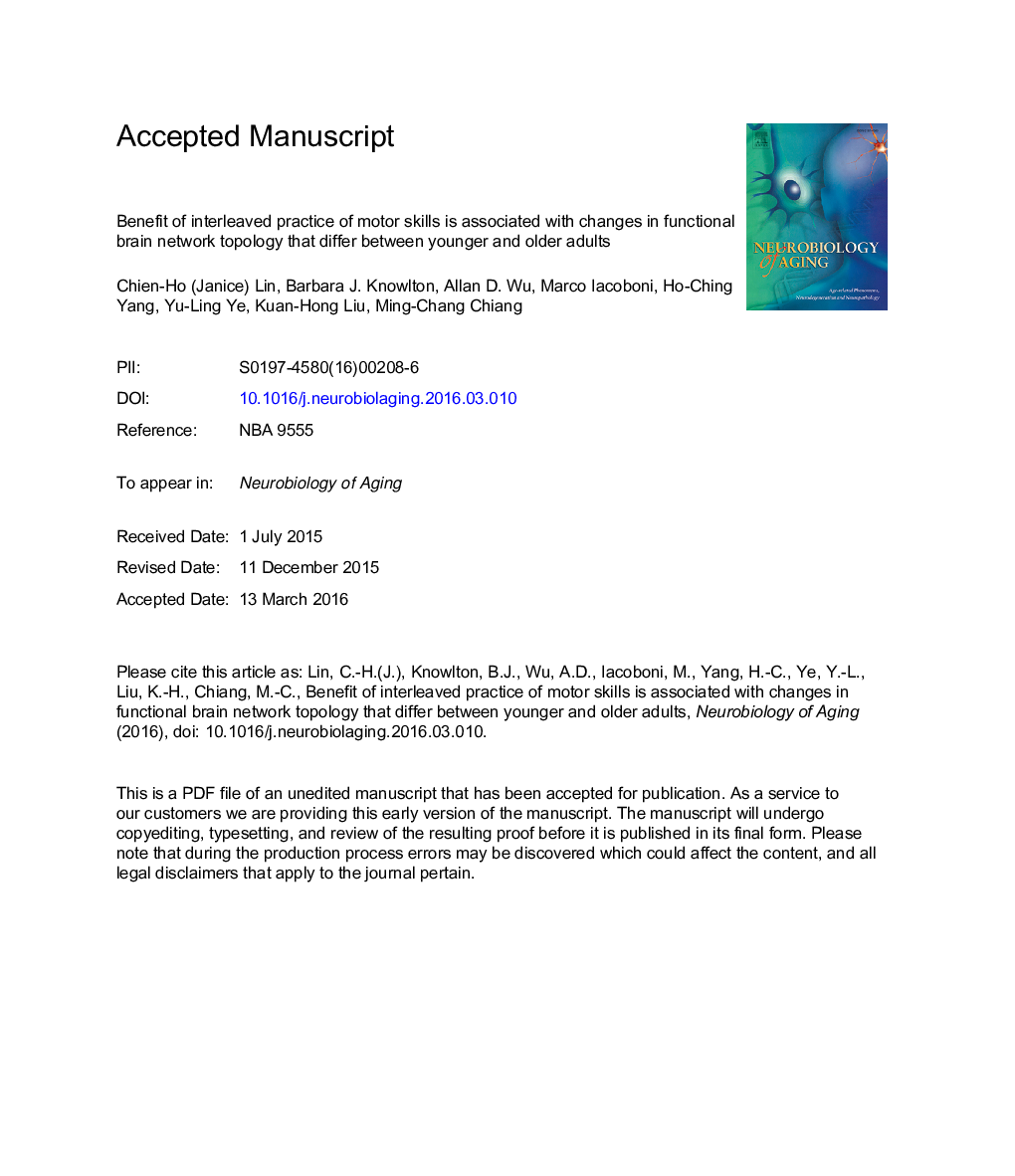| Article ID | Journal | Published Year | Pages | File Type |
|---|---|---|---|---|
| 6803489 | Neurobiology of Aging | 2016 | 35 Pages |
Abstract
Practicing tasks arranged in an interleaved manner generally leads to superior retention compared with practicing tasks repetitively, a phenomenon known as the contextual interference (CI) effect. We investigated the brain network of motor learning under CI, that is, the CI network, and how it was affected by aging. Sixteen younger and 16 older adults practiced motor sequences arranged in a repetitive or an interleaved order over 2Â days, followed by a retention test on day 5 to evaluate learning. Network analysis was applied to functional MRI data on retention to define the CI network by identifying brain regions with greater between-region connectivity after interleaved compared with repetitive practice. CI effects were present in both groups but stronger in younger adults. Moreover, CI networks in younger adults exhibited efficient small-world topology, with a significant association between higher network centrality and better learning after interleaved practice. Older adults did not show such favorable network properties. Our findings suggest that aging affects the efficiency of brain networks underlying enhanced motor learning after CI practice.
Keywords
Related Topics
Life Sciences
Biochemistry, Genetics and Molecular Biology
Ageing
Authors
Chien-Ho (Janice) Lin, Barbara J. Knowlton, Allan D. Wu, Marco Iacoboni, Ho-Ching Yang, Yu-Ling Ye, Kuan-Hong Liu, Ming-Chang Chiang,
